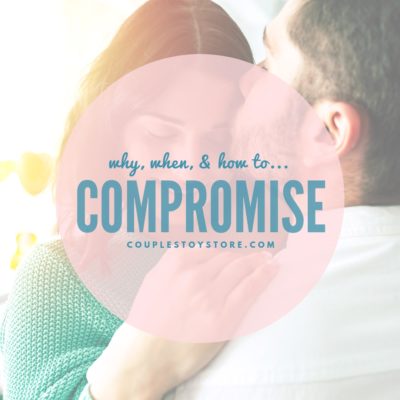Relationship Advice, Self Love
Compromise
Compromise. It’s one of those words that’s a pillar in terms of relationship skills. It’s one of the most common pieces of advice during advice-for-the-bride games at a bridal shower. And it’s also way easier to talk about on a normal day, as opposed to a day that you’ve actually had to do it. Read: I come to you writing this blog in the middle of a big situation where compromise is needed. I can very clearly tell you, sometimes it’s easier to compromise than others!

WHY DO I HAVE TO COMPROMISE?
Let’s start with the easiest part – why do we need to compromise? In the early stages of a relationship, when everything is all romance and discovery and honeymoon phase, compromises may not be that prevalent of a thing between partners. But as a relationship continues to grow, more situations are likely to arise that require some level of compromise – from the small compromises like missing a game on TV in order to attend a family function, to where to live based on two partners’ careers. We need to compromise because without it, we can’t move forward and make progress. In any situation. Take the missing a game on TV example. If there is no compromise, and two partners are at a standstill and don’t meet somewhere in the middle, there is going to be some hurt and resentment. This next example is silly, but imagine two cars (or three, or four) at a four-way stop sign. Eventually someone needs to move. If no one does, no one moves forward! We all want to move forward and move on with our lives. Not compromising (or sitting at a stop sign waiting for someone else to go) prevents us from being able to move forward. We need to be able to agree on something, make a move, figure out a direction and then actual GO. In addition to that, not compromising can result in negative emotions. I mentioned hurt and resentment…they are ugly feelings, but real feelings. And those aren’t the only two potential feelings that come up if people don’t compromise. There’s also powerlessness, bitterness, distrust…all these words give me the heebie-jeebies. They can happen in relationships, but they are the types of feelings you can mitigate by having successful communication, compromise, etc. To avoid these things, we need to compromise!WHEN SHOULD I COMPROMISE?
This should come as no surprise but…you should compromise when you and your partner have two different thoughts, opinions, or ideas on something that requires a forward action. For example, you might have different opinions on which ice cream is the best, but that example won’t require a forward action (unless you’re deciding on which pint to buy that week). However, an example like when to start trying to have a baby requires forward action, which is a great time to put compromise skills into play. The underlying foundation of compromise is that you want to get to a place where both partners feel that their needs are being met. So, we should compromise in situations where one (or both) partner(s) aren’t having their needs met. We want as many win-win scenarios as possible in a relationship. Compromise on the things that don’t threaten our core needs and wants – that can be when/where/how a relationship foundation begins to crack.WHEN SHOULD I NOT COMPROMISE?
In the same breath as saying we want both partners’ needs met, there’s a red flag that should go up when one partner is constantly doing the compromising. If one person is continuously sacrificing their needs for the other, that’s not really “compromise.” And therefore, that’s the right time to NOT compromise.HOW DO I COMPROMISE?
It ain’t always easy to do! But this list below should be a good jump start on how to compromise.- Know your needs. This requires some self-work to know what is important to you, what you value, and what you’re worth. You may not even think of some of these things ahead of time until a situation arises that requires you to decide what you need in that particular scenario. As much as it’s your responsibility to know your own needs, you have to know that your partner has their needs as well. In a situation requiring compromise, you need to know your needs AND take your partner’s needs into consideration. Once you do that, then you can…
- Find a happy medium. You might have to bend, and bending is okay. You just don’t want to break. So, it’s important for you to know that line for yourself – what will make you break versus what allows you to bend? Speaking of that…
- Know your nice-to-haves. Need-to-haves and nice-to-haves are different. Know the difference for yourself and that will keep you in check when trying to compromise. Be realistic about your true needs and just your preferences!
- Lose the ‘tude on having to be right. Let’s act like grownups and let go of our ego. It’s not about being right or winning. It doesn’t have to be just ‘my way.’ Compromise means it becomes ‘our way.’
- Keep an open mind. This can be one of the hardest yet most critical parts! The solution to whatever situation you’re in can look very different then what you’ve already resolved in your head. Enter my current situation: I had a vision of something and my partner had something different in mind. We both had to be open to the other’s thoughts and change our perspective in order to get to a resolution. Remember, there is more than one way to see things!
- Move forward together. Once you know your needs and nice-to-haves, have let go of the idea of getting your way, have kept an open mind and found a happy medium, you can commit to that together and move forward. Forget sitting idle at a stop sign – onward you both go, with needs met and solution in place!



